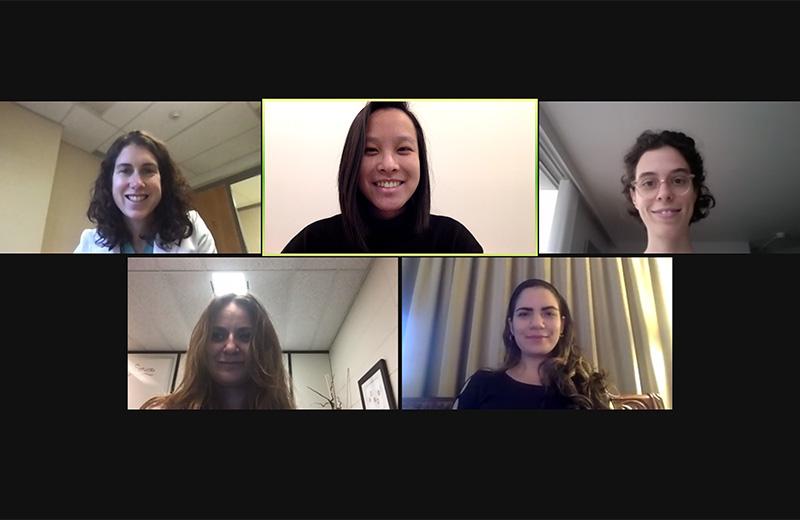The isolation that has come with the COVID-19 pandemic has been tough for people of all ages, but especially for older adults. Medical students across BC were inspired to help and, in Terrace, some residents are now signing up for regular phone visits with these students.
A good idea that keeps on growing
Dr. Martha Spencer, a Vancouver-based geriatrician (a doctor specializing in the care of older adults) saw the need to better support older adults during the pandemic. In the spring of 2020, at St. Paul's Hospital in Vancouver, she saw more older adults coming to the emergency room with depression, weight loss, decline in function, and neglect.
Due to COVID-19, many were not seeing friends and family as often as before. Some had stopped various in-home support services as well. In an effort to help, she joined with several student volunteers to start a program where medical students connect with older adults by phone.
"A program like this is always important, but especially during a pandemic," says Dr. Spencer.
Salina Kung, Leily Malekafzali, and Ellie Siden are second-year medical students from the University of British Columbia who currently lead the program. The program is growing – now with over 30 volunteers and efforts being made to recruit more.
It started with calls to older adults in Vancouver, and now reaches over 30 participants from across BC. Nine have signed up from Terrace, where Dr. Spencer has geriatric medicine outreach clinics four times per year.
A local nurse, Rai Read, has been involved in recruiting and signing up these participants.
Check-in phone calls
Salina, Leily, and Ellie feel that their phone calls with older adults are the best part of their volunteer roles. Calls might be weekly, monthly, or based on what participants want. Students don't provide medical advice. Rather, they join in casual conversation and provide a listening ear.
“Based on the feedback we’ve received, participants really appreciate these check-in calls, having that time to catch us up on things that are happening in their lives, and to learn what's happening in ours," says Salina. "I really appreciate the calls too. It's nice to have time to connect and share."
Leily agrees: "It's super casual. My participant shares stories from her past, life lessons, how her life has evolved, activities in her day. And every time I speak with her, she says she is already looking forward to the next call, which is really great to hear."
Ellie explains, "With COVID, many older adults may have kept their closest relationships, but no longer have the opportunity to stretch their social interactions - meeting new people and talking with people they don't really know." These calls help to support certain needs.
A participant’s view
Dick Evans is a Terrace resident who was recently matched with a student volunteer, and is pleased the student is from the North.
“This program is a benefit particularly for people who have no family or are isolated due to COVID,” he says. “Hopefully [the student] will want to practice here after completing his training. We are very lucky to have such great people in the medical profession here in the North.”
Good for the students too
This program meets needs for students too. Not only is it a safe way to volunteer and make a difference during the pandemic, it’s good for their education as well, points out Dr. Spencer.
While she grew up having a very close relationship with her four grandparents, not everyone has that experience. This had a positive effect on her life and shaped her career choice to focus on the medical care of older adults.
"Older adults make up a large portion of the population, and meeting and treating older adults can be very rewarding,” says Dr. Spencer. “This program is a good way to help medical students build skills and develop positive attitudes about working with this population."
It’s a win-win.
Interested in participating?
Older adults living in the Terrace area who wish to register, or have questions about eligibility, can call Rai Read, RN, Elderly Service Clinician, at 250-631-4274.














Comments